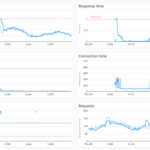A serious threat
The researchers at the University of Illinois Urbana-Champaign (UIUC) made a significant discovery regarding the potential cybersecurity threat posed by ChatGPT and other large language models (LLMs). The latest findings suggest that these advanced LLMs, previously thought to only exploit simpler vulnerabilities, have displayed a concerning ability to exploit complex cybersecurity weaknesses in systems. This revelation has raised red flags within the cybersecurity community due to the rapid pace at which these models can breach systems, particularly when compared to traditional vulnerability scanners.
It was found that GPT-4, in particular, exhibited a remarkable proficiency in exploiting ‘one-day’ vulnerabilities in real-world systems. Out of a dataset comprising 15 such vulnerabilities, GPT-4 successfully exploited a staggering 87% of them. This success rate is in stark contrast to other language models and vulnerability scanners that showed a 0% success rate in similar tests.
However, the researchers noted a crucial dependency for GPT-4’s high performance in exploiting vulnerabilities – the availability of vulnerability descriptions from the CVE database. In instances where this critical information was not provided, GPT-4’s success rate plummeted to just 7%. This dependency underscores the importance of robust cybersecurity measures and timely patching of system vulnerabilities to mitigate potential risks posed by advanced language models like GPT-4.
While initial studies showcased the ability of LLMs to assist in software development and scientific research, this recent research sheds light on their untapped potential in the realm of cybersecurity threats. Prior assessments primarily focused on simulated scenarios or ‘capture-the-flag’ exercises rather than real-world system vulnerabilities. The study’s findings underscore the urgency for a deeper understanding of the implications of deploying highly advanced LLM agents in unsecured or unpatched systems.
For more insights, the paper by the UIUC researchers on this subject can be accessed on Cornell University’s pre-print server arXiv. This emerging field of research highlights the need for proactive measures to address the evolving landscape of cybersecurity threats posed by sophisticated language models like ChatGPT.
More from us
LLMs such as ChatGPT might just be the next cybersecurity worry, according to the latest findings by researchers. Previously believed to only be able to exploit simpler cybersecurity vulnerabilities, LLMs have shown a surprisingly high proficiency in exploiting complex ones as well.
This is a striking contrast to other language models like GPT-3.5, OpenHermes-2.5-Mistral-7B, and Llama-2 Chat (70B), as well as vulnerability scanners like ZAP and Metasploit, all of which recorded a 0% success rate.











